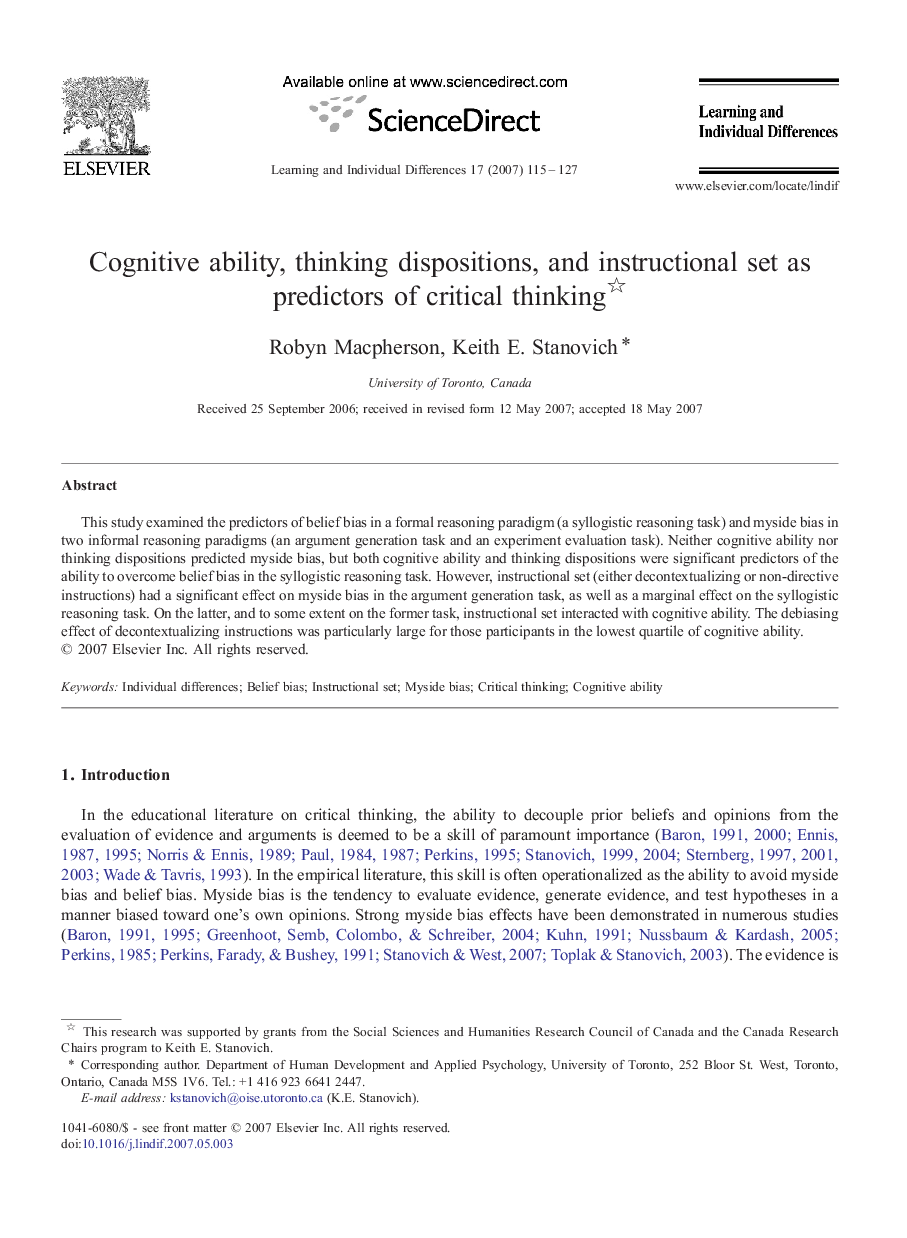| Article ID | Journal | Published Year | Pages | File Type |
|---|---|---|---|---|
| 365231 | Learning and Individual Differences | 2007 | 13 Pages |
This study examined the predictors of belief bias in a formal reasoning paradigm (a syllogistic reasoning task) and myside bias in two informal reasoning paradigms (an argument generation task and an experiment evaluation task). Neither cognitive ability nor thinking dispositions predicted myside bias, but both cognitive ability and thinking dispositions were significant predictors of the ability to overcome belief bias in the syllogistic reasoning task. However, instructional set (either decontextualizing or non-directive instructions) had a significant effect on myside bias in the argument generation task, as well as a marginal effect on the syllogistic reasoning task. On the latter, and to some extent on the former task, instructional set interacted with cognitive ability. The debiasing effect of decontextualizing instructions was particularly large for those participants in the lowest quartile of cognitive ability.
